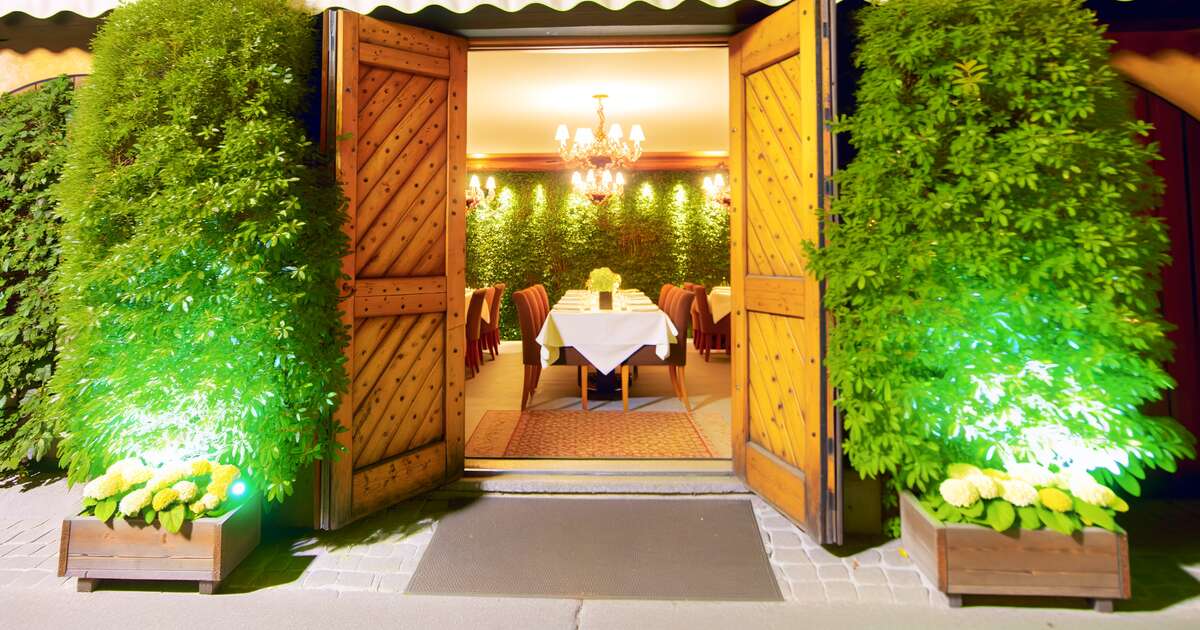
What truly sets a great Restaurant Host apart from the rest? It’s not just about managing reservations or greeting guests with a smile. The role is pivotal, often setting the tone for the dining experience and ensuring everything runs smoothly. In the bustling world of hospitality, possessing the right personality traits can make a world of difference. But what are these traits, and why are they so crucial?
Dive into the heart of the hospitality industry where a Restaurant Host‘s charisma and competence shine! Whether it’s their ability to stay organized in a hectic environment, their unwavering patience during a dinner rush, or their innate ability to make every guest feel special—each trait contributes significantly to their success. Ready to find out which key personality traits you need to excel as a Restaurant Host? Let’s explore these indispensable qualities and see how they align with the needs of any thriving restaurant.
Traits That Define a Highly Effective Restaurant Host
What sets a standout Restaurant Host apart from the rest? It’s not just about managing reservations or greeting guests; it’s the intricate blend of personality traits that define their effectiveness. Ensuring each guest feels welcomed and valued from the moment they step in sets the tone for their entire dining experience.
Empathy: The Heart of Hospitality
Imagine walking into a restaurant and being greeted by someone who not only welcomes you with a smile but also anticipates your needs and makes you feel at ease. That’s empathy at play, a critical trait for any successful restaurant host. This ability to understand and share the feelings of others helps hosts to connect with guests on a personal level, ensuring a memorable visit.
Proactive Problem-Solving Skills
Ever been to a restaurant where every potential hiccup was smoothly handled before it even affected your experience? That’s the magic of proactive problem-solving. Effective hosts are always two steps ahead, mitigating issues before they escalate, ensuring that guests seldom have anything less than a stellar experience.
Unwavering Professionalism
Professionalism is the backbone of a host’s role. It involves not just a polished appearance, but also maintaining composure, respect, and positivity, regardless of the situation. This professionalism reassures guests, making them feel secure and attended to throughout their dining journey.

Understanding The Impact of a Warm Welcome in Hospitality
When you walk into a restaurant, what’s the first thing that impacts your dining experience? Yes, it’s the greeting you receive! A warm welcome by the restaurant host sets the stage for what’s likely to be a delightful meal. But what’s the actual impact of such a greeting in the hospitality sector? Let’s find out.
First impressions are crucial, and in the restaurant business, the host is often responsible for making that first impression a great one. A friendly smile, a genuine greeting, and a personable demeanor can make all the difference. These simple actions by a restaurant host not only put guests at ease but also significantly enhance their overall perception of the restaurant. Have you ever returned to a restaurant just because you were made to feel like royalty from the moment you stepped in?
Moreover, the initial interaction with the host can influence customer satisfaction and loyalty. A warm welcome fostsers a positive start to the dining experience, which in turn can lead to higher customer retention rates. Think about it: when the host remembers your name or your favorite table, doesn’t it just make your dining experience more personal and enjoyable?
Finally, a competent and hospitable host also boosts the morale of the entire restaurant team. When staff see their host engaging positively with guests, it sets a high standard and a positive tone for their own interactions. This synergy among the staff not only creates a more enjoyable work environment but also leads to better service delivery across the board.
How Excellent Communication Skills Elevate Guest Experiences
It’s no secret that the success of a dining experience often hinges on the initial interaction guests have with the restaurant host. But what elevates a simple greeting to a memorable welcome? The answer lies in the host’s communication skills. A skilled restaurant host knows the power of using the right tone, clear articulation, and active listening to not only convey information but also make guests feel valued and understood.
Have you ever been greeted by someone who made you feel immediately comfortable and excited about your dining choice? That’s the magic of effective communication. It sets the tone for the entire evening. For a restaurant host, being able to clearly communicate about wait times, restaurant specials, and answering any inquiries guests might have with a smile, can turn a routine interaction into an exceptional experience.
- Using positive language to uplift the guest’s mood
- Adjusting communication style based on the guest’s demeanor
- Paying attention to non-verbal cues to better serve guests
Moreover, exemplary communication is not just about talking; it’s also about listening. A good restaurant host listens to understand guests’ needs and preferences, which can significantly enhance the tailored experience a restaurant aims to provide. So, next time you visit a restaurant, notice how the host communicates with you and other guests—it’s a core trait that can indeed make or break the dining experience.

Multitasking: A Non-Negotiable Trait for a Restaurant Host
When it comes to the bustling environment of a restaurant, being a great host demands the ability to juggle multiple tasks simultaneously. Multitasking is a non-negotiable trait for any successful Restaurant Host. Why is this ability so crucial? Because every minute and every interaction counts!
Imagine managing reservations, greeting guests, and coordinating table allocations all at once. It’s not just about doing two things at the same time, but doing them effectively and seamlessly. This capability ensures that operations run smoothly and that every guest feels valued from the moment they step in. Doesn’t this sound like an essential skill every Restaurant Host should master?
Real-Life Applications of Multitasking in Hospitality
- Juggling phone reservations with in-person inquiries without missing a beat.
- Balancing the need to attend to new arrivals while ensuring those waiting are kept informed and comfortable.
- Coordinating with the kitchen and dining staff to adjust seating arrangements dynamically as guest numbers fluctuate.
The ability to multitask not only maximizes efficiency but also enhances the overall guest experience, making it a pivotal trait for any Restaurant Host striving for excellence in the hospitality industry. Remember, mastering multitasking can elevate a host from good to great! 🌟
The Role of Patience and Composure Under Pressure
In the bustling atmosphere of a restaurant, the ability to remain calm and poised during high-pressure situations is invaluable. Have you ever noticed how some hosts can handle a dinner rush with a serene smile? This isn’t just a happy coincidence; it’s the result of having strong patience and composure. For a restaurant host, these traits are not just nice to have—they’re essential!
When things get hectic, a restaurant host with patience can efficiently manage long wait times and customer complaints, turning potentially negative experiences into positive ones. Composure allows them to think clearly, ensuring that nothing gets missed, even when the pressure is on. Isn’t it impressive when every guest feels personally attended to, despite the chaos?
- Remaining calm under pressure to make rational decisions
- Gently handling customer queries and complaints with grace
- Prioritizing tasks to maintain the flow during peak hours
Ultimately, these traits contribute significantly to the overall guest experience and the smooth operation of the restaurant. A host who masters patience and composure not only uplifts the mood of the team but also influences the dining environment, making it more welcoming and organized. What could be more essential in a role that hinges on customer satisfaction and operational efficiency?
Common Questions
Is a host and a waiter the same?
No, a host and a waiter are not the same in the context of restaurant roles. A host or hostess is primarily responsible for greeting customers as they enter the restaurant, managing reservations, and showing guests to their tables. They are the first point of contact for guests and help in managing the flow of the dining area. On the other hand, a waiter, or server, is responsible for taking orders, serving food and beverages to guests, and ensuring a good dining experience. Waiters are also involved in preparing checks and processing payment. Each role focuses on specific aspects of guest service and contributes differently to the restaurant’s operations.
What are the duties of a host?
The duties of a host or hostess in a restaurant involve several key responsibilities aimed at enhancing guest experience and maintaining efficient dining room operations. These duties include greeting guests as they arrive and providing a warm, welcoming environment. Hosts manage reservations and waiting lists, allocate tables to guests, and sometimes answer phone calls. Additionally, they coordinate with the restaurant staff to inform them of special needs or requests from guests, such as dietary restrictions or occasion-based arrangements. Effective coordination helps in managing the seating chart and traffic flow in the restaurant, ensuring guests are seated promptly and that tables are turned over efficiently.
What is the role of the host?
The role of the host in a restaurant is pivotal in setting the tone for a guest’s dining experience and ensuring the smooth operation of the restaurant’s seating and guest management. A host acts as the face of the establishment, offering the first impression of the restaurant through their greeting and interactions. They handle reservations, manage waiting lists and coordinate the seating of guests, thereby directly influencing the flow and organization of the dining area. Additionally, hosts often manage initial inquiries, both in person and over the phone, and communicate guest needs to the rest of the restaurant staff, ensuring that specific requests are met efficiently.
Is it hard to be a host at a restaurant?
Being a host at a restaurant can be challenging due to the multitasking and interpersonal skills required. Hosts must deal with various scenarios like managing impatient customers, handling reservation conflicts, and ensuring that guests are seated in a timely manner according to their preferences and special requests. The job requires excellent communication skills, a friendly demeanor, and the ability to remain calm under pressure. Hosts also need to be organized and proactive in anticipating restaurant needs and guest flow. While the job can be demanding, especially during peak dining hours, it is also rewarding and provides valuable experience in customer service and restaurant management.
Adaptability: Key to Managing Diverse Customer Interactions
Adaptability isn’t just a buzzword; it’s a crucial trait for any restaurant host! Why? Because every guest who walks through the door is unique, with their own expectations and dining preferences. To manage these diverse customer interactions effectively, being adaptable is key. It allows you to swiftly adjust to different situations, ensuring every guest feels valued and satisfied.👍
Imagine this: one moment you’re dealing with a couple celebrating their anniversary, requiring a quiet, intimate setting, and the next, you’re accommodating a noisy family with energetic kids. Without the ability to adapt quickly, it would be hard to meet such varying needs effectively, right? This agility not only enhances the dining experience but also solidifies the reputation of the restaurant as welcoming and accommodating.
Moreover, adaptability extends to dealing with unforeseen challenges like sudden changes in staffing or unexpected dietary requests from guests. A great restaurant host is always prepared to think on their feet and come up with solutions that ensure the smooth running of the restaurant. They pivot strategies, shuffle reservations, and even tweak meal presentations, all in a day’s work!
Final Thoughts: Essential Personality Traits of a Successful Restaurant Host
So, are you ready to step into the shoes of a successful restaurant host? Armed with these key personality traits, you’re not just prepared but poised to excel in the bustling world of hospitality. From ensuring a warm welcome to mastering the art of multitasking, each trait you develop contributes significantly to crafting unforgettable guest experiences. Remember, being an exceptional restaurant host is about much more than seating guests—it’s about making them feel valued from the moment they step in.
As you adopt these characteristics, watch how your role as a restaurant host transforms not only your professional life but also enhances the dining experience for every guest. Why not put these traits to the test and see how you can make your next shift remarkable? 😊 Embracing each trait fully could indeed be your pathway to becoming the heart of your restaurant’s hospitality!





